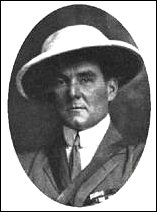Yesterday's NYT has an article by Steven Johnson on using text coding and query software for creative writers. Some, like Stefanie at So Many Books, wonder if relying on the computer will eventually dull the creative process, as associations in the text are linked with the click of the mouse. Johnson, however, is more positive:
IF these tools do get adopted, will they affect the kinds of books and essays people write? I suspect they might, because they are not as helpful to narratives or linear arguments; they're associative tools ultimately. They don't do cause-and-effect as well as they do ''x reminds me of y.'' So they're ideally suited for books organized around ideas rather than single narrative threads: more ''Lives of a Cell'' and ''The Tipping Point'' than ''Seabiscuit.''
No doubt some will say that these tools remind them of the way they use Google already, and the comparison is apt. (One of the new applications that came out last year was Google Desktop -- using the search engine's tools to filter through your personal files.) But there's a fundamental difference between searching a universe of documents created by strangers and searching your own personal library. When you're freewheeling through ideas that you yourself have collated -- particularly when you'd long ago forgotten about them -- there's something about the experience that seems uncannily like freewheeling through the corridors of your own memory. It feels like thinking.
Reading this I thought about the role of fieldnotes in cultural anthropology. Anthropologists come back from the field with mountains of notes (one old-time professor I know has almost 10,000 single-spaced typed pages collected over the many years he has worked in one Mexican village), and so were early adopters of computerized coding software (for instance, I use ATLAS /Ti to code, query, and retrieve some of my notes, and heartily recommend it). But instead of relying on the software to assist us in the cognitive process of classifying and analyzing, coding software is most often used to test conjectures about your data. The types of fieldnotes, clippings, video, and diary entries collected during fieldwork are simply too great to all be imported into fieldnote software packages, whereas for directed studies, such as qualitative projects including interviews or survey data, these packages make sense. My hunch is that for creative writers, the well of inspiration and notes from which they draw upon is simply too diffuse and deep to scan into one of these programs and, like their cultural anthropology counterparts, the creative process is best left to the chaotic assemblage of jottings, outlines, and mental walks that help the writer to find his/her best voice.
Subscribe to:
Post Comments (Atom)

No comments:
Post a Comment